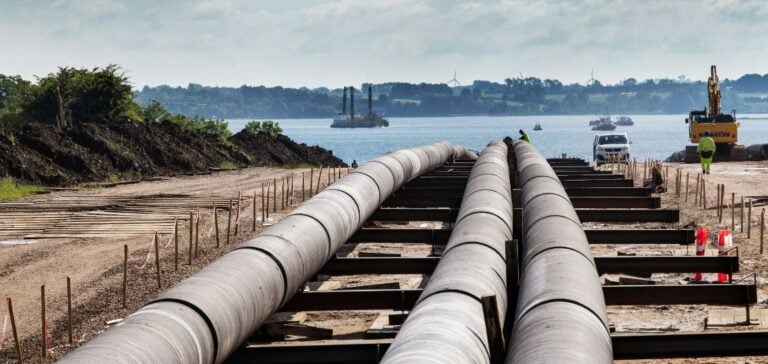Norway, Europe’s primary natural gas supplier, has taken a decisive step in managing its energy resources. The Norwegian Ministry of Energy announced that it has reached an agreement with seven private entities to nationalize a large portion of the pipeline network, a strategic infrastructure playing a key role in European energy security.
The objective of this initiative is clear: to strengthen public control over a transport infrastructure essential to stable gas supplies to Europe, especially since Russian deliveries declined following the invasion of Ukraine in 2022. Through this nationalization process, Norway aims to ensure secure management of its resources, aligning with its national energy strategy.
Details of the Nationalization Agreement
Norway has committed to paying 18.1 billion kroner (about $1.64 billion) to the seven owners involved in the pipeline network. This acquisition increases the State’s stake in the Gassled consortium, which owns the network, from 46.7% to 100%. Among the companies that agreed to sell their shares are energy sector giants such as Shell, CapeOmega, ConocoPhillips, Equinor, Hav Energy, Orlen, and Silex.
This agreement follows decisions announced as early as 2023, when the government expressed its intention to nationalize the network upon the expiration of concessions in 2028. The transaction is retroactive to January 1, 2024, meaning the State is now in full control of an extensive network of over 9,000 km of subsea pipelines, directly linking Norway to its European partners.
Reactions and Exceptions Among the Companies
Despite the scale of the agreement, some companies did not accept the buyout offer. Among them, North Sea Infrastructure and M Vest Energy, which hold shares in the Nyhamna processing plant and the Polarled pipeline, decided to keep their shares. Equinor, for its part, negotiated to retain a small stake in these specific infrastructures, maintaining some presence in Norwegian gas processing and transportation operations.
The Norwegian Ministry of Energy, however, noted that discussions could continue. In case of persistent disagreement, the State plans to take control of these remaining stakes at the end of the current concessions or as part of future agreements, to realize its vision of complete nationalization.
Impact on the Energy Sector and Involved Actors
This nationalization reflects a growing trend among states to take control of their strategic energy infrastructures in an uncertain geopolitical context. Norway has thus consolidated its role as a critical arbiter in European gas supplies, offering a stable alternative in the face of declining Russian deliveries. For the affected companies, this initiative requires a redefinition of their role in the Norwegian sector and could encourage them to strengthen activities in other regions.
Financial actors, investors, and other stakeholders in the sector will closely monitor this development. Norway’s decision could also affect bilateral relations between Norway and its European clients, who have a vested interest in stabilizing their relationships with a reliable, transparent state supplier.
Perspectives and Lessons for Other Nations
The nationalization of Norway’s pipeline network could inspire other nations seeking to secure their own energy infrastructures, an issue increasingly important in the context of current energy transitions. For analysts and industry professionals, Norway’s decision may serve as a model for other countries wishing to strengthen their energy sovereignty.
Public-private collaborations could also intensify, the challenge being to ensure a stable energy supply while securing infrastructures against potential geopolitical crises. Norway’s approach thus underscores the importance of a proactive, anticipatory strategy to adapt to the dynamics of the global energy market.





















